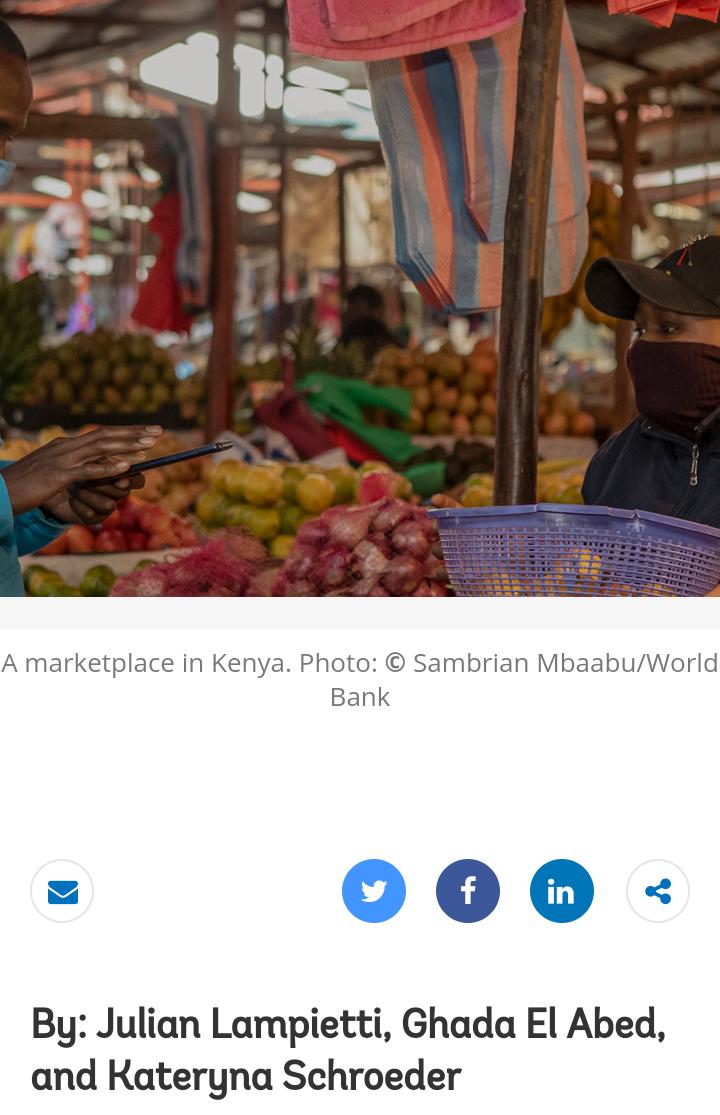This article argues it is vital to correct pervasive information asymmetries and transaction costs across a vast food system to move toward a more inclusive, resilient and sustainable model. While large-scale industrial food production accompanied by just-in-time supply chains have produced many gains, the hazards of this system are increasingly visible on the horizon.
Digital technology drives change on multiple fronts at accelerated rates by collecting, using, and analyzing massive amounts of machine-readable data about practically every aspect of the food system at nearly zero marginal cost.
Read the full article at The World Bank

